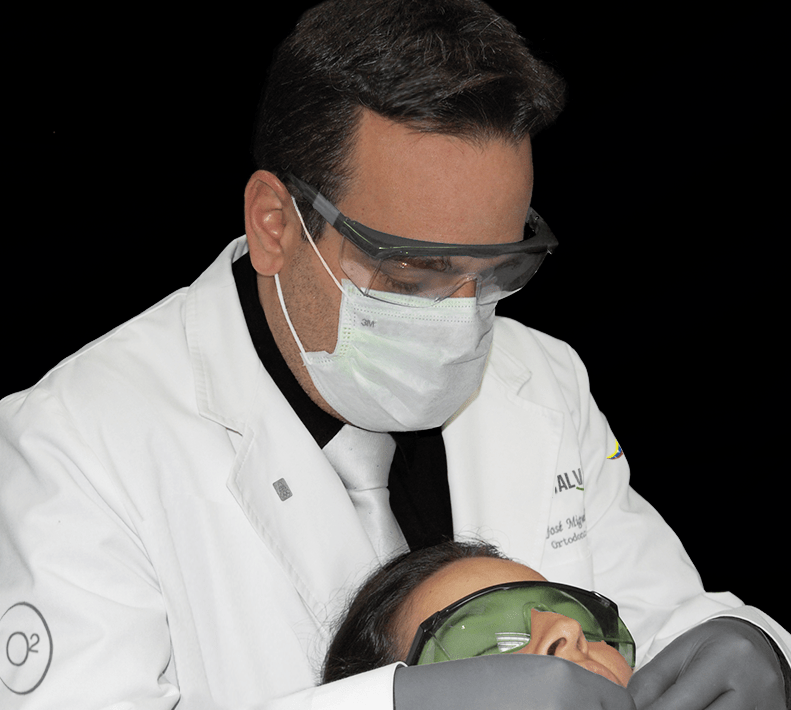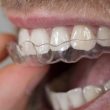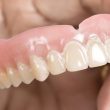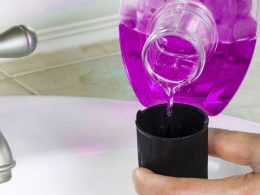Table of Contents
It has always been heard that fluorine is good for the teeth and that from time to time applications of it should be made, but many people do not know the essence of this recommendation.
This mineral has the ability to prevent tooth decay because it is concentrated in the bones and teeth of developing children, and strengthens teeth that have completed their formation and eruption in adults. Also, it can harden tooth enamel by acting favorably on demineralization and remineralization phenomena that normally occur at the tooth structure level.
In addition, fluorine inhibits the metabolism of the bacterial plaque that causes tooth decay, altering its composition and hindering or delaying its formation.
When we apply fluorine to the teeth, the deposits left on the tooth surface can act as a mineral reservoir that balances the critical pH, thus requiring a much more acidic pH value for the tooth enamel to dilute and form a cavity. This is why fluorine is so important for the teeth of children and adults.
Only with small amounts can we obtain the aforementioned benefits and enjoy one of the most important preventive Dentistry resources in history. Let us see a little more next about this invaluable natural element.
What Is Fluorine?
Fluorine is the chemical element with atomic number 9 located in the group of halogens (group 17) of the periodic table of elements. Its symbol is F. It is a gas at room temperature, of pale green color and formed by diatomic F2 molecules. It is the most electronegative and reactive of all the elements. In its pure form it is highly dangerous, causing severe chemical burns on contact with the skin.
In a simpler way, we can say that fluorine is a natural mineral that is found throughout the earth’s crust and is widely distributed in nature. In aqueous dissolution, fluorine is normally present in the form of fluoride ion F-, combined with some positively charged element to form compounds called fluorides.
For this reason, from now on we will talk about fluoride and not fluorine, since it is the most correct way to refer to this chemical element.
Some foods and water supplies also contain fluoride. Fluorides are often added to drinking water reservoirs in communities that do not yet have it at sufficient levels to help strengthen teeth and reduce cavities.
The effectiveness of fluoride in fighting tooth decay was discovered in the 1930s, when researchers found that children who grew up drinking naturally fluoridated water had fewer cavities than people who lived in areas without it. Studies since then have repeatedly shown that when fluoride is added to a city or community water supply, rates of tooth decay decrease.
The American Dental Association (ADA), the World Health Organization (WHO), and the American Medical Association (AMA), among many other organizations, have endorsed the use of fluoride in water supplies because of its effect on tooth decay. Even, this element has been defined as the “natural enemy against tooth decay”, according to the American Dental Association.
How Does Fluoride Work?
The “how” behind fluoride gets a bit more technical, but we will try to explain it very simply by limiting ourselves to saying that it has a dual mechanism of action.
On the one hand, it transforms the hydroxyapatite in enamel into another compound that is more resistant to decalcification. Fluoride binds to calcium and phosphate that exist naturally in enamel to create fluorapatite, which is a much stronger, acid-resistant material.
On the other hand, it inhibits the bacterial glycolysis reactions of dental plaque, reducing the formation of acids (acetic and butyric), an essential mechanism for the decomposition of hydroxyapatite into calcium ions, phosphate and water.
In very simple words: it hardens tooth enamel and attacks dental plaque bacteria.
Which Are Its Main Benefits?
Fluoride helps teeth in two ways. When children eat or drink the compound in small doses, it enters the bloodstream and by systemic way penetrates the germs of the developing permanent teeth, becoming part of its composition.
That is why the maximum benefits of fluoride are obtained in children, when they are ingested before the eruption of permanent teeth.
Additionally, fluoride becomes part of saliva and helps to strengthen teeth from the outside, making the acids less capable of damaging tooth enamel. This phenomenon strengthens the teeth and makes them much less susceptible and more resistant to tooth decay. It is a benefit that can also be enjoyed by adults.
Is Fluoride Safe? Could It Be Toxic? What Is Dental Fluorosis?
Like everything, a wild consumption could not only be toxic, but deadly. However, at the proper doses, it is a completely safe and effective compound.
After decades of research, the main risk related to the excessive use of fluoride is dental fluorosis, a condition that children can develop if they are exposed to an excess of the element for a prolonged period when they are too young.
Affected children can expose teeth with white spots or lines and, in some cases, even brown or grayish discolorations in the tooth enamel. Since all water fluoridation systems in developed countries are controlled to maintain safe levels of fluoride, fluorosis can only occur when children ingest too much fluoride toothpaste.
That is why it is important to supervise them while they brush, to make sure they spit out the paste and do not swallow it. Also, as with all medications, it is essential to keep fluoride tablets safely stored, out of the reach of young children.
The Colegio de Odontólogos de Venezuela (COV) confirms that both the safety and benefits of fluoride are well documented. There has never been any scientific evidence linking fluoride to adverse health effects when consumed in the correct amounts. In fact, evidence consistently shows that fluoride is safe and effective in the amounts provided by toothpastes and domestic water.
However, it is not just the COV that upholds the merits of fluoride, as the American Dental Association (ADA) and more than 125 professional organizations around the world also recognize its safety and value. These organizations include nothing more and nothing less than the World Health Organization (WHO).
Fluoride Treatments
There are several options, both for topical application and for systemic ingestion in the form of supplements. Some examples of fluoride compounds include calcium fluoride, sodium fluoride, sodium monofluorophosphate, and stannous fluoride. The last two are the most commonly used forms today.
Topical fluoride products are applied directly to the teeth and include toothpastes, mouthwashes and professional treatments for the dental office. Although they are only in the mouth for a short period of time, topical treatments cause fluoride levels in the mouth to remain higher for several hours after use.
In general, the combination of fluoridated drinking water and toothpastes are usually sufficient for the normal development of the child’s teeth. If the tap water does not contain fluoride or if only bottled water that does not contain it is drunk, the Dentist may recommend fluoride treatments in the office, to ensure that the patient acquires good protection.
Professional fluoride treatments are applied in the form of a gel, foam or varnish. The fluoride used for these treatments has a higher concentration than over-the-counter mouthwashes or toothpastes, and should only be applied by a professional.
They are highly recommended for children and adults!
Special Supplements
If you are concerned that your child is not getting enough fluoride, ask your Pediatric or Child Dentist about special supplements. Fluoride supplements are generally indicated for children between 6 months and 16 years who do not consume fluoridated water. They are available in liquid form for younger children and tablets, for older children and adolescents.
Professionals may also prescribe fluoride rinses and gels if your child needs a higher concentration than these supplements can provide. Either way, always make sure to carefully supervise your children when using any fluoride products and always keep these supplements out of their direct reach.
“Although Fluoride Considerably Increases Resistance to Tooth Decay, Correct Brushing and Flossing, Continue to Be the Two Fundamental Pillars of Oral Health”.
DENTAL TIP
Final Reflection
Although the benefits of fluoride are unquestionable, they are not a panacea for oral health. Its effects on the composition of the dental structure and potential destroyer of dental plaque, are only adjuncts to correct oral hygiene.
Fluoride will be able to do little or nothing if the patient does not take care of his diet, does not brush correctly and frequently, does not use dental floss and other oral hygiene aids and does not go regularly to the Dentist for checkups and professional dental cleanings on a regular basis.
The Smile of Your Dreams Awaits You in Venezuela!
A cost saving alternative to your local dental care.
DENTAL VIP offers dental services in Caracas to patients from North America, Europe and the Caribbean.
We designed all our services to meet the special needs and expectations of our guests travelling for treatment:
- 50-70% lower prices.
- Volume discounts.
- Free consultation (X-ray, dental quote and transport).
- Extended guarantee packages for all treatments.
- Shorter treatment times and no waiting list.
- Free all time patient support.
- Travel and hotel assistance.
- After-care services.
We wish to ensure that your visit not only saves you money but you receive the best care for your dental needs. DENTAL VIP is dedicated to provide value for your money in your dental treatment, travel, and stay in Caracas.
Do not compromise on quality for the price, visit us in Caracas for your treatment and allow yourself the best. Do not settle for awkward removable dentures, low-end dental implants, or only temporary solutions.
Do not waste any more time, contact us right now!












